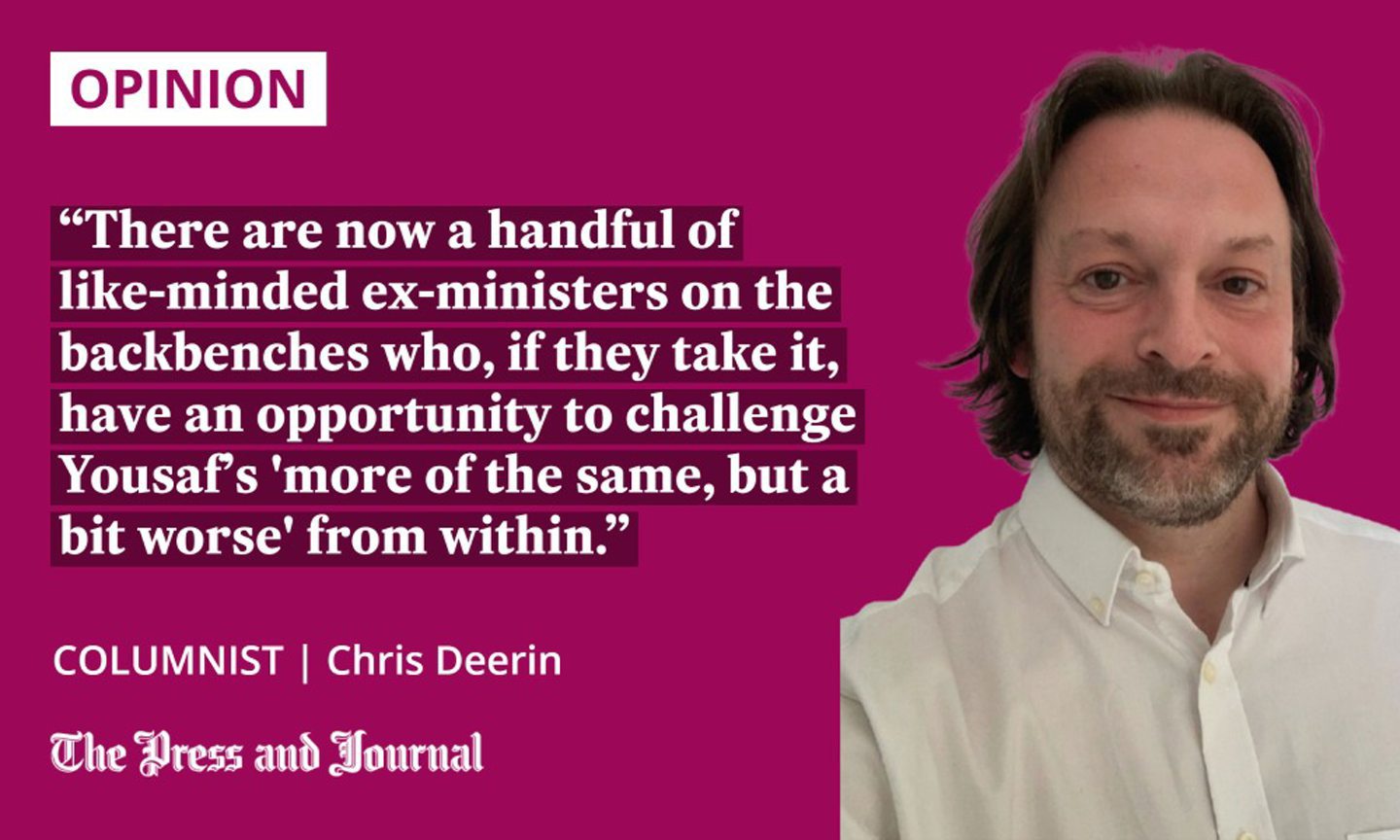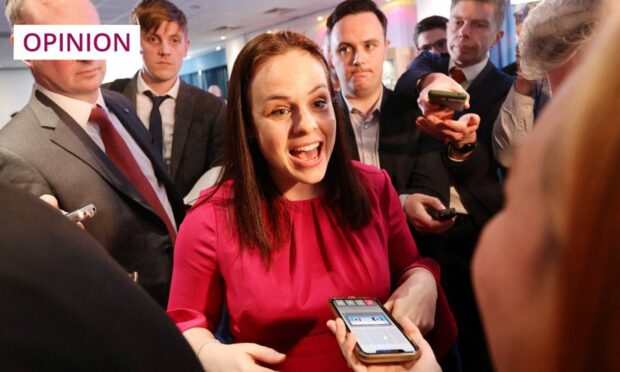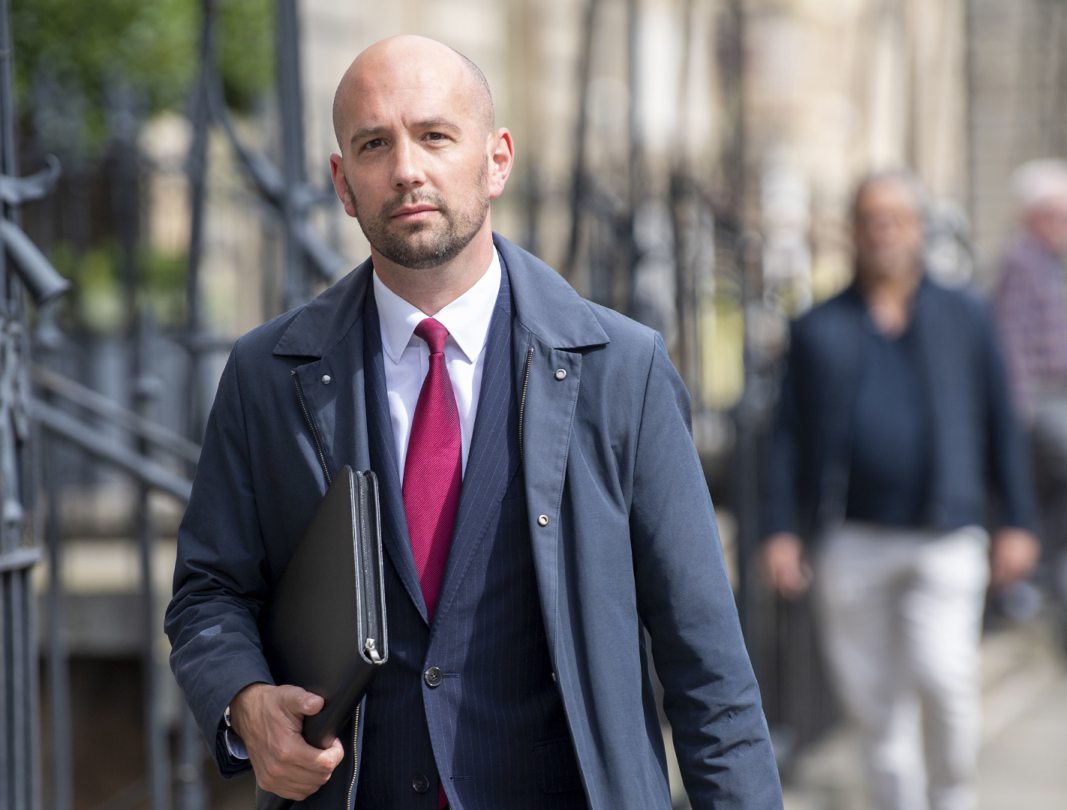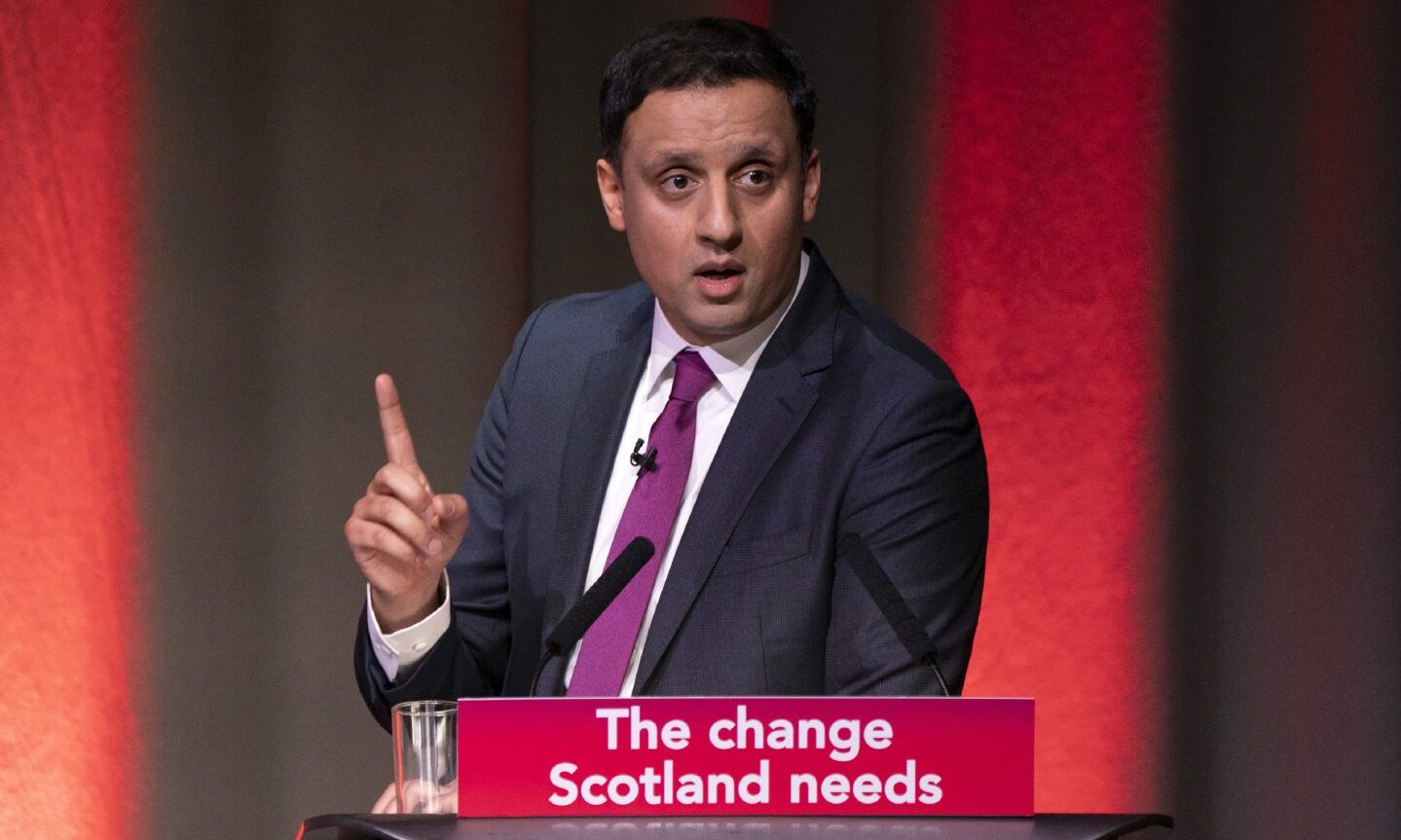This must be a truly surreal Easter break for Kate Forbes.
A few short weeks ago, she was wrestling with stinky nappies and sleepless nights at her Highland home, before suddenly being thrust from maternity leave into a frenetic, vicious contest to become first minister. If you think a new baby can be challenging and unpredictable, meet the SNP.
The campaign saw her come under intense public attack over her views on issues such as same-sex marriage and abortion, and a bruising assault on her fitness for the top job by erstwhile ministerial colleagues. She was betrayed so often, the cock must have been crowing like a fire alarm.
Now, having won the battle for public opinion but narrowly lost among SNP members, Forbes is close to being a free agent. She has quit the cabinet after being offered a derisory demotion from her position as finance secretary by Humza Yousaf, and so has gone from high-flyer to humble backbencher. Back home with her family, she must feel a little like Pam did when Bobby emerged from the shower in Dallas: was it all just a (bad) dream?

There will be wounds to lick, despite Forbes’s natural resilience and positivity. Relationships have been damaged. The Holyrood chamber might be a little awkward for a while. And where does she go now? How affected is her career? Is there a place for her centrist views in Yousaf’s SNP, which appears to be shifting left at an alarming rate?
But Forbes is smart, knows her own mind, and will not dally long. During her campaign, she set out a sensible, mainstream programme to pursue economic growth in order to better tackle Scotland’s endemic poverty.
While her chief rival blathered meaninglessly about a “progressive, wellbeing economy”, displaying no understanding of where the money might come from to fund this apparent utopia, she talked about the need for government to get behind Scotland’s much-neglected business community, so that it can adapt to the changing global economy, attract investment, produce better jobs, and increase tax revenues. She argued that Scotland’s ailing NHS and school system need reformed, not just managed on the road to decline.
A Forbes victory would have meant a burst of energy and renewal for the SNP in government, rather than what we have: a first minister who has placed himself in hock to the socially extreme, anti-growth Greens.
‘Time for a change’ argument becomes ever more powerful
There are now a handful of like-minded ex-ministers on the backbenches who, if they take it, have an opportunity to challenge Yousaf’s “more of the same, but a bit worse” from within. Along with Forbes, Ivan McKee, who was her junior minister at finance, is respected by business and has shown a willingness to think for himself.
Ben Macpherson is a rising star who, after four junior ministerial posts in five years, didn’t fancy being shifted to yet another minor role. It will be interesting to see which way Keith Brown, the SNP deputy leader who was sacked from the cabinet by Yousaf, now swings.
If, as is being widely predicted, Yousaf struggles in the top job, those SNP MSPs with a brain of their own have an important task ahead of them. They must keep thinking and debating. Simply shifting money from one pot to another and calling it progressive politics won’t cut it.
There are signs that voters are losing patience with the governing party’s timidity and growing record of failure. Polls over the past few days suggest Labour could win back around 15 Scottish seats at next year’s general election – that could include key SNP constituencies in the Central Belt, and the figure may yet grow as Keir Starmer heads for Downing Street.
The sense of an era drawing to a close is starting to take hold and, as it does, the “time for a change” argument becomes ever more powerful.
Independence is not around the corner
Forbes, McKee and Macpherson know that independence is not around the corner. If it was going to occur in this cycle of SNP dominance it would have happened by now.
A majority of Scots remain unconvinced by the case as it has been made, and a growing number of nationalist voices publicly admit as much. The relentlessly aggressive, anti-Westminster strategy pursued by Sturgeon, her constant agitating for a second referendum, and her record of overpromising and under-delivering as first minister simply didn’t work.
It’s clearer than ever that if they are ever to secure their goal, the nationalists will have to show patience, and prove they are capable of using the muscular powers of Holyrood to deliver modern, effective public services and a thriving economy. It feels to me that, under Yousaf, the SNP will probably do the opposite. And, after 16 years, time – I’m afraid – is running out.
It is far from unthinkable that there could be a unionist majority at the 2026 Scottish Parliament election, and that Labour’s Anas Sarwar finds himself in Bute House.
The whole strategy of “wheesht for indy” has been a calamity for the independence movement. Scots are not stupid, and recognise failure when they see it.
Forbes spoke of SNP “mediocrity” during the leadership campaign, and she was right. From the backbenches, she and others must speak up – and loudly, if they are to save their party from itself.
Chris Deerin is a leading journalist and commentator who heads independent, non-party think tank, Reform Scotland



Conversation